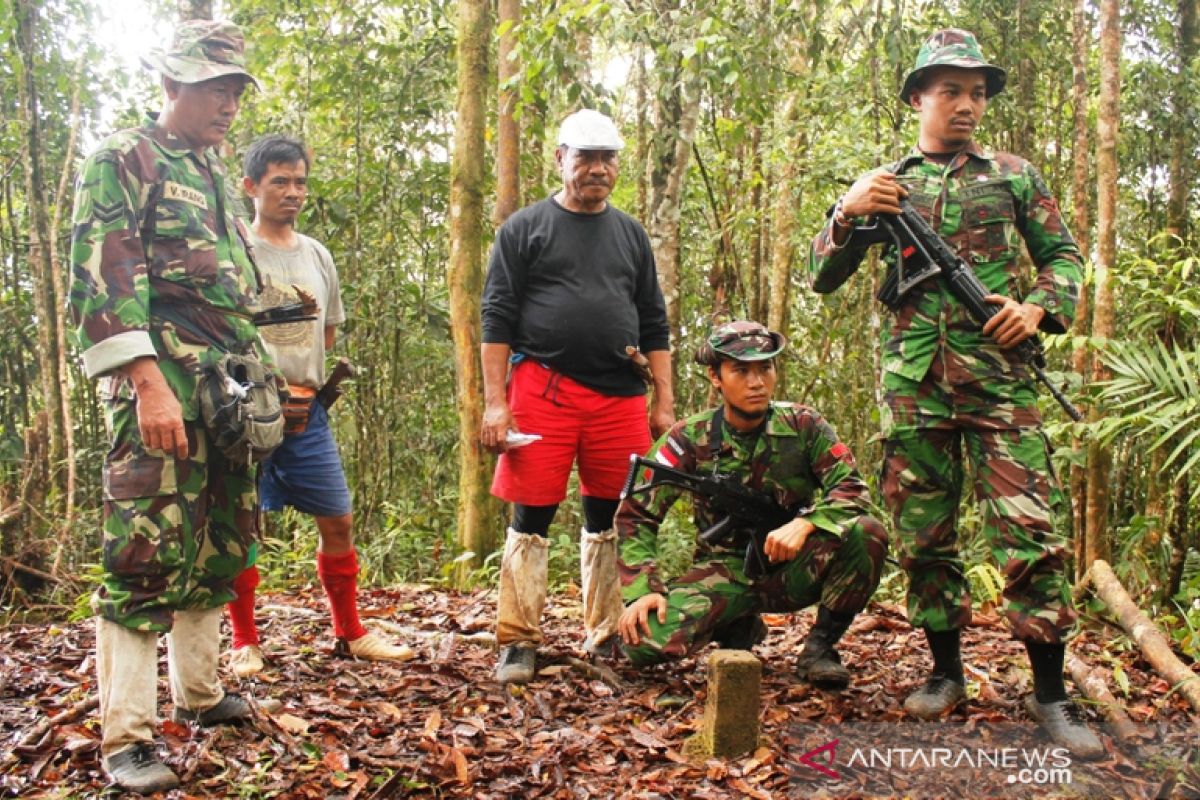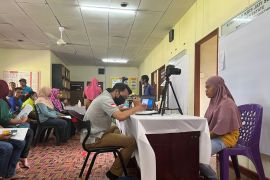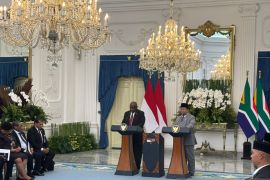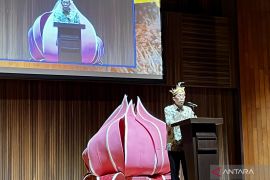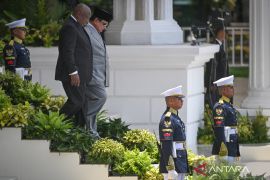"My colleague and I departed for the national border area this morning," Head of Subdivision of the State Territory Boundary, Border Management Section of Mahakam Ulu, Juk Jiu remarked in Ujoh Bilang, Saturday.
Jiu was keen to get journalists involved in the process of checking border stakes along with getting a first-hand glimpse of the condition of the region to offer them a broader perspective to pen mature work, as it was not based on news from related regional organizations (OPD) but getting on-ground facts.
Jiu stated that it took eight days to travel from and return back to Ujoh Bilang, the capital city of Mahakam Ulu.
During that period, the trip involved passing through the Mahakam River line owing to no road being present. It took between six and seven hours to travel by speedboat or longboat from Ujoh Bilang to Kampung Tiong Ohang, the capital city of Long Apari District.
A night in Tiong Ohang was the only option left since no speedboat or ketinting boat ventured in the afternoon or night, since to reach the upstream area, one had to cross two dangerous cascades, with Riam 611 being one of them.
Jiu explained that the next day would entail a trip to Long Apari Village, the last village in Long Apari Sub-district. On arrival at the village, Jiu would report to the Border Security Task Force in charge of the area.
At the Long Apari Village, he remarked that if the Mahakam River was still navigable, then the trip would continue upstream again, towards the Riam Matahari. However, if mother nature became hostile, he would have to stay overnight and then continue the journey on the next day.
"To reach the border region, we can only give an estimate of the number of days required, as it depends on the vagaries of nature. If the river is not raging due to high currents, then while going up into the forest and up and down the mountain, if it does not rain, then the travel would be smooth. Hence, the conditions across the world play a decisive role," Jiu noted.
On reaching the end of the river, the journey continues to the forest area, and an estimated stay of two to three nights in the forest would be necessary for examining the national borders, repairing damaged or closed ones, and documenting the report material.
Translator: Eliswan Azly
Editor: Sri Haryati
Copyright © ANTARA 2019
